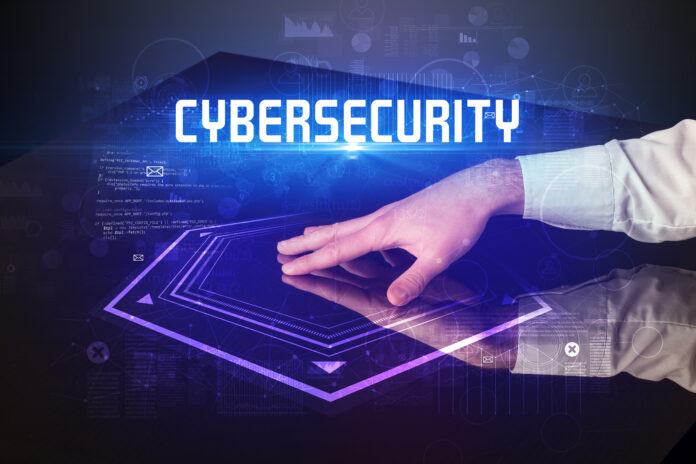Cybersecurity is becoming one of the most important topics of discussion in the modern world as society increasingly depends on technology. No longer a technical topic, cybersecurity is now discussed at the topmost levels of corporations and governments alike. It is also a rapidly evolving field that must adapt to technological innovations and trends. This article reviews key trends that will shape the cybersecurity industry in the coming years.
The positive impact of AI on Cybersecurity
Artificial Intelligence (AI) has already become one of the most disruptive innovations of the past few decades. Machine Learning (ML) has improved cybersecurity products and solutions over the past few years with improved threat detection, automation, etc. Still, the arrival of ChatGPT on the scene in 2022 proved to be a game changer.
The AI-powered chatbot has impacted nearly every industry, with cybersecurity being no exception. It is already used to generate and review code, exploits, and even write security alert rules. Cybersecurity teams should ensure they have policies and Dos and Don’ts written down for such products and educate employees on the proper etiquette of generative AI.
We can also expect AI and ML to integrate more tightly with cybersecurity fields like application security and penetration testing and automate some of the lower level work.
AI-powered cybercrime
Unfortunately, AI is a double-edged sword, with cyber criminals also realizing its potential. We have deepfake scams becoming increasingly popular in a new kind of social engineering and AI-powered malware capable of evading the latest security products. In addition, AI-based applications are also vulnerable to new attacks like membership inference and model poisoning, which did not exist before. Cybersecurity teams must quickly upskill to defend against these new attack vectors or risk being left behind.
The Rise of Quantum Computing
Quantum Computing which allows the harnessing of computational power far beyond that of traditional computers, is another innovation that will change cybersecurity. New cybersecurity technologies and products will have access to the processing power that was impossible before, allowing more security problems to be solved. Unfortunately, this power can also be misused with Quantum Computing, easily capable of breaking today’s encryption algorithms on which the vast majority of the world depends. Cybersecurity teams need to understand how cryptography will work in a post-quantum world and how to prevent such attacks in the near future.
5G and its growing popularity
Another growing trend is the rise of 5G deployments which allow devices to connect at much faster speeds than currently possible allowing efficient deployments of self-driving vehicles and Smart Homes powered by the Internet of Things (IoT). This will also result in a massive increase in interconnected devices, increasing the attack surface area cybersecurity teams need to secure. Teams will need to look at new strategies for securing such a diverse and scattered network of devices and invest in AI-powered tooling and Zero Trust deployments to mitigate these threats.
Blockchain’s Impact on Cybersecurity
It would seem strange to call Blockchain a new trend as the technology has existed for quite some time, forming the basis for cryptocurrencies like Bitcoin. However, its cybersecurity usage is gaining traction due to its resistance to fraud and tampering. Blockchain technologies can help to validate malicious software updates, which are common in Supply chain attacks.
Supply chain security
Attacks like SolarWinds have highlighted how big of a blind spot supply chain attacks can be for cybersecurity teams. Cybercriminals are increasingly targeting the software supply chain instead of directly attacking a company’s defenses head-on due to the implicit trust that is present. These attacks can be devastating in their impact and compromise multiple companies simultaneously, as with SolarWinds. It is crucial to add the supply chain to cybersecurity risk assessments and adopt zero-trust principles that ensure all requests are authenticated regardless of where they originate.
Conclusion
New cybersecurity technologies are fast-moving field, and it is essential to be aware of these trends like 5G, AI, BlockChain, etc., shaping the industry’s future. These trends must be studied and integrated into the cybersecurity strategies of companies so proactive measures can be taken. The future is filled with opportunities and threats, and it is essential to be ready for both of them!
FREQUENTLY ASKED QUESTIONS
What role will AI and Machine Learning play in the future of cybersecurity?

AI and Machine Learning will become increasingly integral to cybersecurity efforts. They will enable more efficient threat detection, analysis, and response and automate routine tasks, allowing security professionals to focus on complex and strategic issues.
How will quantum computing impact cybersecurity?

Quantum computing has the potential to break modern encryption algorithms, necessitating the development of post-quantum cryptography to ensure the continued security of communications and data storage.
What are the potential applications of blockchain technology in cybersecurity?

Blockchain technology can create decentralized identity management systems, protect user privacy, and ensure the integrity and provenance of software updates, reducing the risk of supply chain attacks.
How will the rise of 5G and edge computing affect cybersecurity?

The widespread deployment of 5G networks and the increasing adoption of edge computing will increase connected devices and data transmission, posing new security challenges. Security professionals must develop new strategies for securing 5G networks and edge computing environments.
Why is there an increased focus on privacy and data protection?

High-profile data breaches and growing public awareness of privacy issues have increased the emphasis on privacy and data protection. This may result in more stringent regulations, industry standards, and investment in privacy-enhancing technologies.
What is the significance of supply chain security in cybersecurity?
Supply chain security is crucial because cyber attackers increasingly target supply chain vulnerabilities to compromise systems and sensitive data. Organizations and governments must proactively mitigate risks and secure their supply chains.
How can organizations address the human element in cybersecurity?
Organizations should invest in cybersecurity awareness and training programs for employees, provide regular training on recognizing and responding to potential threats, and promote a culture of security awareness. Investing in technologies to mitigate the risk posed by human error, such as advanced email filtering systems and secure password managers, can also help.




